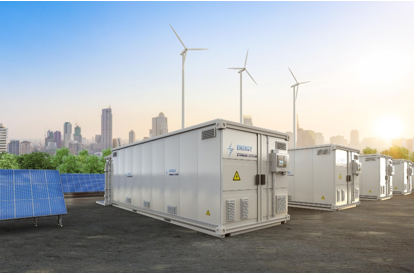i INP-WEALTHPK
Amir Saeed
Amid growing energy challenges, Pakistan urgently needs innovative solutions to ensure a more stable, affordable, and sustainable power supply, an energy economist told WealthPK.

One of the most promising strategies is the development of grid-scale battery storage systems, which can revolutionize the way electricity is produced, stored, and consumed nationwide, said Dr Khalid Waleed.
He suggested that Pakistan must explore alternative sectors for economic and energy security, specifically the battery industry. With global attention shifting to clean and flexible energy systems, he highlighted lithium and sodium as valuable local resources that can fuel the country’s progress.
While lithium is already in use for electric vehicles and storage technologies, Waleed believed the country should also look into producing sodium-ion batteries, which are gaining traction due to their cost-effectiveness and resource availability.
“Sodium-ion batteries, though not yet mainstream in EVs, are well-suited for grid-level storage. This type of storage is especially important in Pakistan, where the electricity demand fluctuates seasonally, rising sharply in the summer and dropping in winter.”
“By storing excess energy during low-demand periods and supplying it during peak times, grid-scale batteries can significantly improve energy reliability and reduce dependence on costly, short-term power generation,” he said.
“Globally, countries with similar seasonal energy patterns, such as Russia and parts of Europe, are already adopting such technologies to enhance grid stability and reduce waste,” Waleed added.
Talking to WealthPK, Ahsan Gaylani, an expert in renewable energy with specialization in wind and solar power, emphasized that battery storage can play a critical role in bridging the gap between intermittent renewable generation and consumer demand. Without storage, surplus solar or wind power often goes unused.
He pointed out that by investing in domestic storage solutions, the country can cut back on fuel imports and minimize capacity payments to idle thermal power plants – two major drivers of the circular debt crisis.
“Around the world, battery storage is becoming central to national energy strategies. China and the US, for instance, are rapidly deploying large-scale battery systems to modernize their grids. If Pakistan prioritizes this emerging technology, it can unlock cleaner, cheaper, and more resilient energy infrastructure,” he added.
“With the right investments and policy direction, grid-scale battery storage could be the catalyst Pakistan needs to transition toward a smarter, more sustainable, and economically viable energy future.”
Credit: INP-WealthPk



